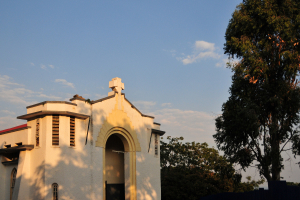German Churches Report Growing Thirst for Services
Both the Catholic and the Evangelical Churches in Germany have reported a growing thirst for church services in the wake of numerous tragedies.
Both the Catholic and the Evangelical Churches in Germany have reported a growing thirst for church services in the wake of numerous tragedies.
Leading Bishop of the United Evangelical Lutheran Church in Germany (VELKD), Hans Christian Knuth, said that immediately after the terror attacks and natural disasters of 2005, "many troubled and scared minds are searching for a foothold and unity in suffering."
The Bishop was speaking at an international liturgy conference in Dresden. He added that despite "all the remoteness from faith and the church," and despite "all the media diversity", church service is still irreplaceable and incomparable.
Catholic theologist Martin Stuffleser called church a "counter-society." He said that people in modern society seek "a counter to daily routine" and "moments of reflection."
The church in Germany has responded to the 'new realization effect' with a fresh look at the practice of "rigid and antiquated rituals." The church aims to make the most of this revived interest in the church with new forms of worship.
President of the liturgy congress, Ottfried Jordahn, said that old rituals should not become boring. The VELKD's liturgy speaker Jans Krech said that "new ways in the presentation of rooms and the dress" were needed.
The VELKD is an affiliation of eight Lutheran state churches and counts around eleven million members.
More than 200 evangelical, Catholic and orthodox clergymen gathered in Dresden for the Congress on the Form of Church Service under the theme of "the changing and healing power of liturgy in a broken world." During the conference, which have been held every other year since 1967, church services by Byzantine, Catholic and Anglican ordinations were held in churches around Dresden.




























